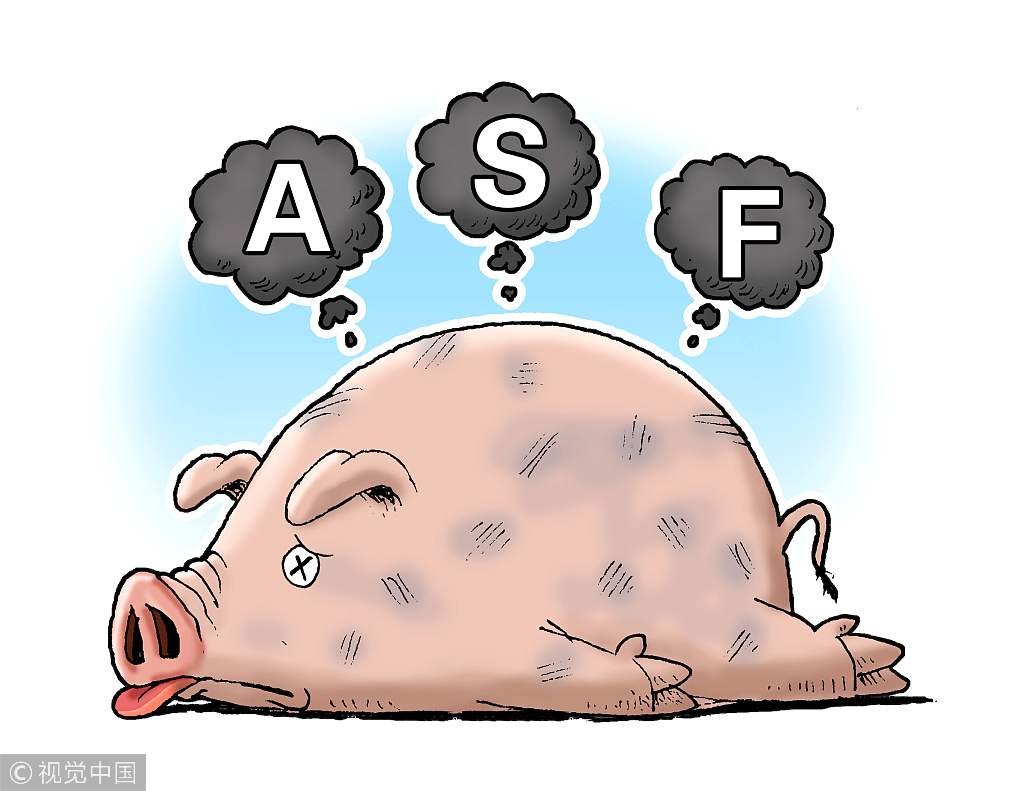Four detained after pigs with African swine fever discovered


Four people in North China's Inner Mongolia autonomous region were detained after a quarantine certificate was illegally issued for pigs with African swine fever that were then transported into the region, local authorities said.
China's first African swine fever case was discovered on Aug 1 in Northeast China's Liaoning province, which borders Inner Mongolia autonomous region. The disease has a mortality rate of virtually 100 percent in pigs but doesn't affect humans.
The latest case happened in Hohhot, capital of Inner Mongolia. On Saturday, a vet stationed at a slaughter facility in the city noticed two dead pigs and two others behaving abnormally. On Monday, the pigs were confirmed to have African swine fever.
After an investigation, local authorities found that on Sept 20, Zhang Zhongyan, a Jinquan pig farm sales representatives in the region's Naiman Banner, asked Yang Yongqiang, the official vet assigned to the farm, to illegally issue a quarantine certificate to be used to transport live pigs from Tieling, Liaoning. Dong Xiguang, vice-president of the farm, then paid Yang 8,000 yuan ($1,160), the Department of Agriculture and Animal Husbandry of Inner Mongolia said in a statement on Wednesday.
On Sept 21, two people from Tieling then transported 96 pigs from the city to Hohhot to be slaughtered.
Local police said the case is part of organized crime. Four people from the farm, including its president, have been detained, while police are hunting down four others from Liaoning who are allegedly involved in the case.
The vet's illegal issuing of the quarantine certificate and allowing the company to transport live pigs from an area with African swine fever outbreaks is extremely serious. Also, the lack of inspection on key roads contributed to the incident, the regional Department of Agriculture and Animal Husbandry said.
The department said quarantine measures were imposed in the area. It will also enhance oversight of vets stationed at pig farms and slaughter facilities to prevent illegal issuing and using quarantine certificates.
- Chinese sailor forced to halt Antarctic expedition after robbery
- French, Chinese artists revive industrial heritage in Hunan
- New engineering academicians vow to advance scientific innovation
- Former top railway official expelled from CPC
- Mainland says Taiwan's Lai a 'peace breaker' and 'troublemaker'
- New materials reinforce Nanjing war truth



































